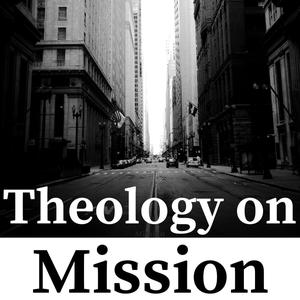
Theology on Mission
Theology on Mission
For those longing to connect theology and mission…
- 50 minutes 34 secondsS10: E8 The Violent Take It by Force with Matthew Taylor
What happens when revivalist faith meets political power?
In this episode of Theology on Mission, Dave Fitch and Mike Moore sit down with scholar Matthew D. Taylor to uncover the startling rise of the New Apostolic Reformation (NAR)—a movement reshaping the landscape of evangelical Christianity and American politics.
Taylor reveals how this influential network of apostles and prophets has grown from obscure beginnings to a force wielding colossal sway, intertwining charismatic zeal with far-right rhetoric. From the Seven Mountains Mandate to the dramatic spiritual warfare on January 6, this conversation peels back the layers on how NAR’s vision of Christian supremacy is impacting both the church and democracy.
Brace yourself for a deep dive into the movement's roots, its rapid ascent, and what it means for the future of faith and public life.
Timestamps:
01:49 Introducing Northern Seminary's New President
04:17 Meet Our Esteemed Guest: Dr. Matthew Taylor
05:49 The Violent Take It By Force: Book Overview
07:50 The New Apostolic Reformation and January 6th
09:24 C. Peter Wagner: The Man Behind the Movement
12:23 Signs, Wonders, and Church Growth
17:51 Strategic Level Spiritual Warfare
20:19 Theological Implications and Controversies
23:11 The Rise of Pragmatic Theology
24:11 From Fringe to Mainstream: The Evolution of NAR
26:16 The Seven Mountain Mandate
27:32 Sarah Palin and the NAR's Political Ambitions
28:10 Donald Trump: The Anointed One
30:57 The Theology of Christian Trumpism
32:02 The January 6th Insurrection
34:35 Theological Reflections and Critiques
38:11 Christian Supremacy vs. Democracy
44:44 Cultural Resentment and Conservative Christians
48:54 Final Thoughts and Future Directions
9 December 2024, 7:42 pm - 50 minutes 23 secondsS10: E7 Prophets Beyond Activism with Julia O’Brien
What is the deepest emphasis of the prophets in the Bible?
Prophets beyond Activism insightfully challenges the common progressive narrative that the prophets of ancient Israel were primarily concerned with social justice. Instead it daringly offers more life-giving ways of engaging the prophetic books for the causes of justice.
The assumption that the prophets of ancient Israel were primarily concerned with social justice so permeates the thinking and the discourse of progressive Christianity that it might be considered an interpretive orthodoxy. For example, progressives characterize prophets as those who speak truth to power and “prophetic preaching” as social critique. Yet, they often do so without explanation or consideration of alternative views.
Timestamps:
01:54 Introducing Dr. Julia O'Brien
03:05 Prophets as Activists Orthodoxy
09:06 Biblical Ventriloquism and Social Justice
13:46 Challenges of Interpreting Prophetic Texts
20:14 The Role of Prophets in Modern Social Justice
45:37 Concluding Thoughts and Final Remarks
18 November 2024, 10:00 am - 1 hour 1 minuteS10: E6 Reflecting on Election Results and the Next Four Years (Live Podcast)
Mike Moore and David Fitch, discuss the post-election landscape following Donald Trump's victory in the 2024 U.S. Presidential Election.
They delve into their reactions to the election outcome, explore the broader implications for the church, politics, and society, and consider how the church should engage in politics moving forward. The conversation includes reflections on the failure of the church to address key societal issues, the challenges faced under the new administration, and calls for the church to become a space of reconciliation and healing.
They emphasize the importance of community engagement and the role of the church in addressing cultural and political divides.
Timestamps:
00:47 Initial Reactions to the 2024 Election
01:39 Personal Reflections and Context
04:21 Theological and Sociological Implications
05:44 Church's Role in Politics
18:01 Cultural Resentment and Antagonism
25:51 Call to Action for the Church
32:18 Practical Steps for Community Engagement
33:09 Addressing Critiques of Local Church Efforts
34:01 The Role of the Church in Politics
35:36 Post-Christendom Reflections
36:59 The Church's Alignment with Political Power
38:20 Fragmented Christendom in the U.S.
40:57 The Church's Role in Social Movements
49:28 Post-Election Reflections and Challenges
55:20 Final Thoughts and Call to Action
6 November 2024, 11:21 pm - 33 minutes 54 secondsS10: E5 Prodigal Gospel: Getting Lost and Found Again in the Good News with Jonny Morrison
The good news is bigger and better than we imagined.
Is the gospel good news for us today? Many Christians—especially young Christians stepping into a world and a church devastated by division, scandal, and abuse—are asking this question and deciding it simply isn’t. For many, it seems like our faith has little to offer the world around us. Our gospel has become too small—it looks nothing like the Jesus who embodies good news in the flesh.
How do we recover this gospel? When we turn to the parable of the prodigal son—a story of elaborate parties, upside-down kingdoms, and reunited families—we can hear in Jesus’ own words a clear presentation of what he is doing, of a truth that is bigger and better than we’ve imagined. In these pages, author and pastor Jonny Morrison invites us on a journey to help us find ourselves and Jesus in the welcoming arms of this familiar parable, zooming out to show how this story shapes the entire story of Scripture. Along the way we discover the radically inclusive power of the gospel that upends religions, disrupts empires, heals the wounded, and empowers the marginalized. This is, after all, Jesus’ news to tell, and when we truly listen to him tell it, we can be found again in the surprising, disarming, challenging gospel that is truly good news.
Timestamps:
02:18 Johnny Morrison's Background
03:57 Discussing Prodigal Gospel
05:12 The Gospel and Its Implications
13:41 Challenges in Communicating the Gospel
15:25 The Need for an Entry Point
16:17 Metaphors for Articulating the Gospel
16:46 The Prodigal Son as a Gospel Metaphor
19:03 Personal Stories and the Gospel
23:34 Challenges and Reservations
26:10 Concluding Thoughts and Recommendations
29 October 2024, 2:03 am - 43 minutes 33 secondsS10: E4 The Journey of 'The Narrow Path' Exploring Spiritual Formation with Rich Villodas
We live in a culture that wants it all. More is seen as better—whether it’s more money, social media fame, choices, or power. For those chasing this way of life, “narrow” seems negative. Who wants to narrow their options . . . or be seen as narrow-minded?
Jesus’ way is subversive and narrow. Yet, there is no more meaningful way to live.
Mike and Fitch are joined by Rich Villodas, lead pastor of New Life Fellowship and author of 'The Narrow Path'. Rich shares insights from his book, which challenges cultural norms and highlights the paradox of the narrow yet spacious path defined by Jesus. The conversation delves into the integration of spiritual formation with justice, community care, and the multifaceted role of therapy within Christian life. There are unquestionable communal aspects of spiritual practices like Sabbath and lament. Gain practical guidance on navigating anger and fostering deep, healing relationships within faith communities. Rich’s personal experiences in a multi-ethnic congregation in Queens, NY, enrich the dialogue, making it a compelling listen for those looking to deepen their spiritual journey while resisting societal pressures.
Get your copy of The Narrow Path: https://amzn.to/4hgUdlk
Timestamps:
02:58 Rich Villodas on Singing in Sermons
04:05 Discussing 'The Narrow Path'
05:04 Countercultural Spiritual Formation
05:47 Unexpected Happiness and Therapy
14:19 Sabbath and Community
21:55 Understanding Anger and Resentment
23:18 Normalizing Anger in the Church
24:43 Formation and Community
25:18 Confession and Vulnerability
25:36 The Role of Community in Healing
27:52 Weekly Confession Practice
28:56 The Importance of Vulnerable Community
31:18 Exploring Emotions with Theology
33:01 Final Thoughts on Spiritual Practices
38:56 Challenges of Multi-Ethnic Ministry
21 October 2024, 5:10 pm - 49 minutes 56 secondsS10: E3 Does God's Power Redefine Leadership? Fitch & Crouch Discus Power Dynamics (Part 2 of 2)
In this episode of Theology on Mission, Dave Fitch and Mike Moore sit down again with Andy Crouch to dive deeper into the complexities of power in the Christian context. Building on themes from Crouch’s book Playing God, they explore the tension between creative and coercive power, framing the conversation around the story of Jesus washing his disciples' feet.
With lively debate and thoughtful reflection, Fitch and Crouch wrestle with authority in the church offering clarity and connection. The episode wraps up with a powerful call to reclaim God's presence and power in the church's practices.
Timestamps:
01:45 Diving into Power Dynamics
05:12 Genesis vs. Jesus: Different Starting Points
11:18 The Role of the State and Power
24:10 Creative Leadership and Coercion
28:47 Understanding Mutual Submission
29:08 God's Power vs. Worldly Power
29:17 Legal Disputes Among Christians
30:56 Jesus' Power and Authority
32:22 Debating the Nature of Jesus' Power
34:48 Peter's Resistance and Jesus' Response
36:18 The Concept of Creative Power
42:48 The Role of the Church and Sacraments
46:33 Final Thoughts and Reflections
14 October 2024, 10:00 am - 41 minutes 8 secondsS10: E2 Andy Crouch & David Fitch Talk Culture Making or Power Grabbing? ( Part 1 of 2)
How does God want His people to deal with power?
Andy Crouch & David Fitch have nuanced ways in which they see God’s invitation to embrace and use power in the world.
The discussion explores topics such as coercive versus creative power, idolatry and injustice, and the pervasive influence of systems like Mammon in modern Christian thought. This candid conversation over the implications of using power in the name of God. From the Genesis narrative and historical stances on ecclesiastical power.
This deep dive aims to unpack the complexities of wielding power within Christendom, ultimately emphasizing a return to true worship and dependence on God as a solution.
Timestamps:
01:36 Introducing Andy Crouch
02:28 Andy Crouch's Journey and Work
03:56 The Crisis in Evangelicalism
05:20 The Theology of Power
10:55 The Creative and Coercive Power
20:02 The Problem of Magic and Mammon
23:54 Introduction to Power Distortion
24:40 Summarizing the Issues of Power
25:23 The Two Powers and Their Origins
26:09 Critique of Andy Crouch's Views
27:02 The Problem with Blurring Powers
29:27 Andy Crouch's Response
34:26 The Role of Coercion in Power
39:00 Concluding Thoughts and Next Steps
5 October 2024, 2:10 am - 32 minutes 58 secondsS10: E1 Organic Intellectuals & The New Role of Church Leadership
There is a critical need for church leaders to engage with cultural issues.
In the Season 10 opener of the Theology on Mission podcast, hosts Dave Fitch and Mike Moore reflect on the shifting role of intellectual leadership during transitional times for the church.
It is important to integrate theological reflection with the practical struggles of everyday ministry. The conversation explores the changing dynamics within Christian education, the decline in church attendance, and the evolving landscape of moral and ethical engagement in a post-Christendom society.
Timestamps:
03:33 Theology on Mission: Engaging Culture
04:01 The Role of Organic Intellectuals
06:57 Challenges Facing the Church and Education
08:08 Cultural Shifts and Church Responses
10:31 The Need for Organic Intellectuals in Ministry
23:43 Training and Developing Organic Theologians
31:22 Conclusion and Upcoming Episodes
27 September 2024, 11:18 pm - 36 minutes 53 secondsS9: E17 Reckoning with Power in Leadership | Pastor’s Table Podcast Crossover
Listen to The Pastor’s Table on your favorite platform: https://pod.link/1661366136
In a world where we can see the abuses of power everywhere.
David Fitch & Mike Moore from The Theology on Mission Podcast join Mark and Tara Beth to discuss power dynamics in the church's life. Church leaders must discern power and avoid its abuses and traumas. By learning from the church's historical pitfalls, Christians can be empowered to relinquish worldly power and make space for God to disrupt and transform our culture for his kingdom.
In this episode they explore the appropriate exercise of power within the church, distinguishing between God's and worldly power, and the importance of mutual submission and humility. The conversation addresses how pastors can discern when they are misusing power and the need for a community and friends to hold them accountable.
Timestamps:
01:08 Meet the Guests: Dr. Mike Moore and Dr. David Fitch
03:35 The Challenge of Power in Pastoral Leadership
05:00 Distinguishing God's Power from Worldly Power
07:33 Recognizing and Managing Misuse of Power
10:45 Spiritual Authority and Mutual Submission
26:40 Practical Applications and Organizational Structures
33:34 Concluding Thoughts
14 June 2024, 9:00 am - 42 minutes 55 secondsS9: E16 Navigating Conflict, Antagonism & Power as Pastors | The Pastor’s Table | Rev. Tara Beth Leach & Mark Quanstrom
Pastors face unexpected challenges all the time.
Tara Beth and Mark talk about the many active struggles of ministry. Antagonism and all sorts of sources have created a polarized world. Often this blows up in the church. Mark and Tara Beth share their insights from mediating conflicts, understanding underlying issues, and knowing when it might be time to move on from a pastoral role.
Pastors foster a reconciling presence as Christ was a reconciling force through his ministry.
Listen to The Pastor’s Table on your favorite platform: https://pod.link/1661366136
Outline:
00:00 Introduction and Banter
01:58 Special Guests Introduction
04:23 Challenges of Ministry
10:01 Antagonism in the Church
18:09 Historical Context of Marriage
18:49 Modern Affluence and Marriage Dynamics
19:56 Pastoral Leadership in Conflict
21:56 Understanding Congregational Antagonisms
23:18 Modeling Reconciliation in Church
29:53 Social Media's Impact on Pastors
38:12 Differentiation and Pastoral Identity
39:28 When It's Time to Leave
41:03 Final Thoughts and Podcast Wrap-Up
8 June 2024, 4:58 pm - 40 minutes 21 secondsS9: E15 Theology & Discipleship in Conflict Zones: 1st Hand Perspective of Christians in Gaza | Dr. Jack Sara
Palestine is the birthplace of Christianity.
Despite the generations-long crisis existing between Israel and Palestinian, there are followers of Jesus faithfully living out their faith. David Fitch and Mike Moore sit down with Reverend Jack Sara, President of Bethlehem Bible College and a native Palestinian pastor. They delve into the pressing issues Christians face on the ground in the Gaza crisis and beyond.
Pastor Jack shares his deeply personal account of living and ministering in a land torn by conflict, tracing the legacy of Palestinian Christians and their pursuit of peace amidst ongoing violence. From the challenges of navigating daily life under occupation to fostering interfaith understanding and resilience, this conversation sheds light on the work of the kingdom of Jesus in regions afflicted by long-standing hostilities.
Listen in as we explore the role of faith, the power of nonviolent reconciliation, and the hope that persists for a better future in Palestine.
Learn more about and support the work being done at Bethlehem Bible College at https://bethbc.edu/
Timestamps:
02:32 Pastor Jack's Personal and Family History Amidst Conflict
03:06 The Role of Christianity in Palestine's Turbulent Context
06:46 Challenges and Hopes for Palestinian Christians
16:46 The Impact of Palestinian Christians Beyond Their Numbers
22:27 Supporting Palestinian Christians: Insights and Actions
38:03 Closing Thoughts and Prayer for Peace
22 April 2024, 4:01 pm - More Episodes? Get the App
Your feedback is valuable to us. Should you encounter any bugs, glitches, lack of functionality or other problems, please email us on [email protected] or join Moon.FM Telegram Group where you can talk directly to the dev team who are happy to answer any queries.
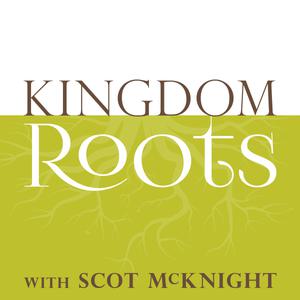 Kingdom Roots with Scot McKnight
Kingdom Roots with Scot McKnight
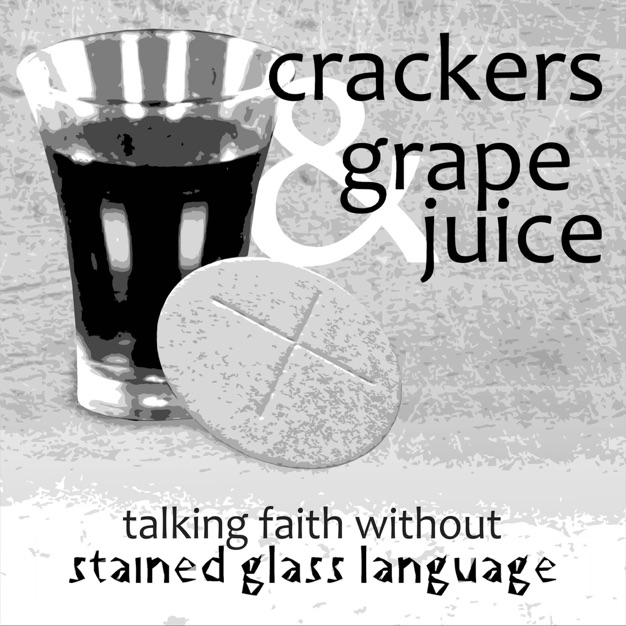 Crackers and Grape Juice
Crackers and Grape Juice
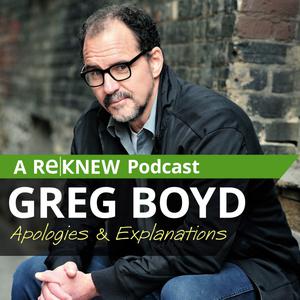 Greg Boyd: Apologies & Explanations
Greg Boyd: Apologies & Explanations
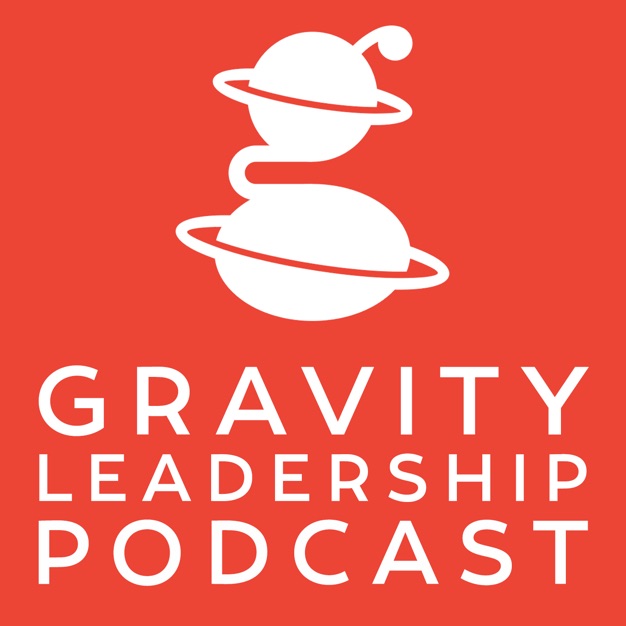 Gravity Leadership Podcast
Gravity Leadership Podcast
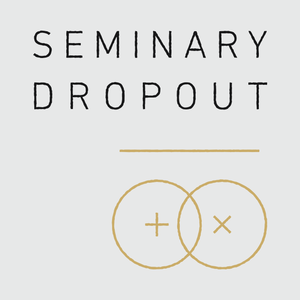 Seminary Dropout
Seminary Dropout